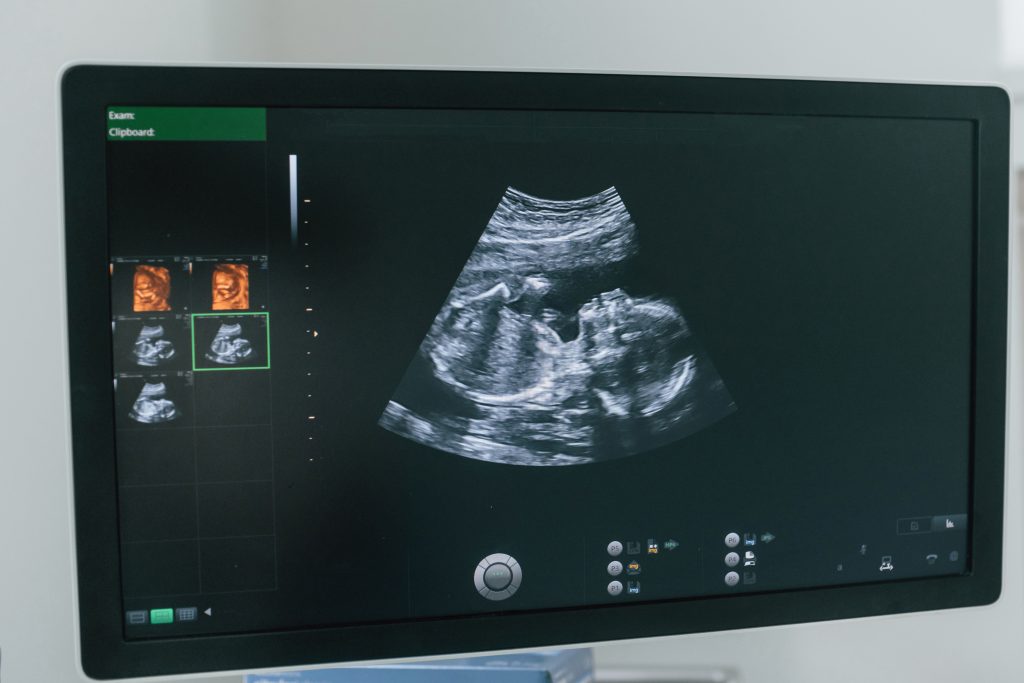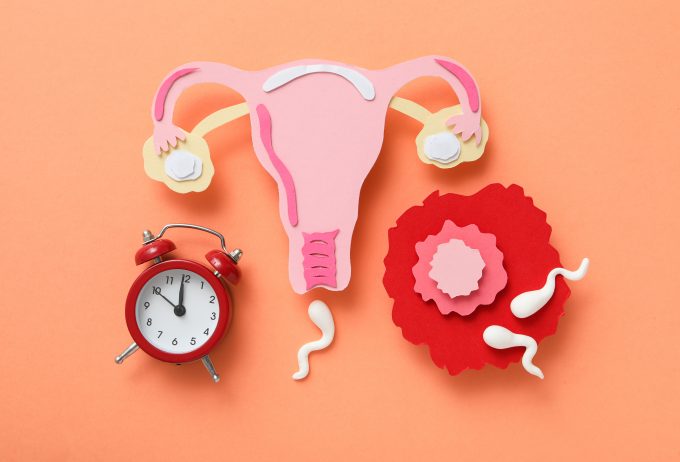Progesterone during IVF and pregnancy
25.8.2023 · 4 min reading
Progesterone is a female reproductive hormone. Its production begins in small amounts already during the maturation of the follicles, increases after the formation of the corpus luteum and rises steeply in pregnancy.
The corpus luteum produces progesterone in the so-called luteal phase of the cycle, a period of about 12-16 days from ovulation to the onset of menstruation, during which the uterine lining prepares for the fertilized egg to nest in the uterus.
Progesterone is normally found in the human body, but it can also be supplied to the body artificially. Today, the pharmaceutical market can offer women drugs that contain a substance as similar as possible to the human hormone, the so-called natural conjugated progesterone.
Placenta as a significant source of progesterone

It’s probably not news to you that the placenta is formed early in pregnancy and supports fetal development until birth, but you may not know exactly what role the amniotic fluid plays in the production of this important reproductive hormone.
“In the 6th week of pregnancy, the placenta begins to produce progesterone in sufficient quantities, and by the 12th week its production of progesterone is already quite sufficient,” explains Europe IVF doctor Marina Tomilova, who has extensive experience in gynaecological endocrinology, reproductive medicine and obstetrics.
It is the placenta that replaces the corpus luteum in the production of hormones that maintain pregnancy. It produces progesterone and estrogens. Their levels rise until the end of pregnancy, when they peak.
Supporting progesterone production in IVF
Doctor Marina Tomilova further mentions the 3 most common situations in which women are usually given progesterone to support pregnancy.
- During hormonal stimulation. In cycles with ovarian stimulation during IVF, the concentration of progesterone tends to be insufficient. “During hormonal stimulation, although a larger number of follicles and subsequently yellow bodies are formed, their production of progesterone is usually insufficient and the hormone needs to be replenished,” explains the doctor, adding that it is necessary for a woman to take it for at least 14 to 16 days after the embryo transfer and to continue taking it in case of a positive pregnancy test.
- During embryo transfer in non-ovulatory cycles. “In many cases we perform embryo transfers in cycles without ovulation, these are transfers of frozen embryos (cryoembryo transfers) or transfers of fresh embryos from donated eggs. As part of the preparation, we recommend hormonal support with estrogens and then progesterone so that the mucosa in the uterine cavity is ready to receive the embryo and it can nest,” says Tomilova. This applies to patients who have not ovulated, have no corpus luteum and therefore no natural source of progesterone. For these women, external administration of the hormone is a must. Let us remind ourselves why: progesterone greatly increases the chances of pregnancy and is important for maintaining an already started pregnancy; therefore, after the embryos have been transferred to the uterus, it is given to women for the following two weeks.
- For non-ovulatory cycles. One of the reasons for anovulation may be an incorrect level or imbalance of female sex hormones. In cases where there is no release of a mature egg from the ovary during the menstrual cycle, progesterone needs to be supplemented artificially. Doctors most often choose this route in patients with irregular cycles to adjust it.
Progesterone in Europe IVF
“Based on numerous studies and our own experience, we have found that when using assisted reproduction methods, it is best to supplement progesterone vaginally,” Marina Tomilova further says, adding: “As a standard, we recommend 800 milligrams a day. We mostly use vaginally administered natural conjugated progesterone, such as Progesterone Bessins, Utrogestan and Amelgen.” These products are directly aimed at women who are undergoing assisted reproduction and need more progesterone.
“Medical studies have shown that low progesterone levels on the day of embryo transfer reduce the chances of pregnancy,” Tomilova further states. So at the Europe IVF clinic, doctors started monitoring progesterone levels on the day of embryo transfer and found that about a third of patients have lower levels, which fortunately is not a cause for panic. This situation has a solution.
Supplying progesterone can save the IVF cycle

“If on the day of the embryo transfer, especially in patients in non-ovulatory cycles, we find that hormone levels are not sufficient, we are able to save the cycle by adding progesterone.” There are two ways, “Either we increase the dose of the vaginally used drug, or we can add a drug with a different route of administration, such as Prolutex, which is injected under the skin. This is the solution we take when we know that the dose of progesterone administered was high, but the blood level does not correspond to it. For us, this is usually a signal that the drug has not been absorbed sufficiently from the vagina, which can happen.” But thanks to their experience, doctors know exactly how to proceed so that treatment can continue.
In the more than a decade of the Europe IVF clinic’s existence, doctors here have performed more than 9,000 embryo transfers – with a great success rate. With an average treatment success rate of 68%, the clinic is now one of the world’s leading centres for assisted reproduction. It has already helped thousands of couples fulfil their wish to become parents and we would be happy to help you too.








